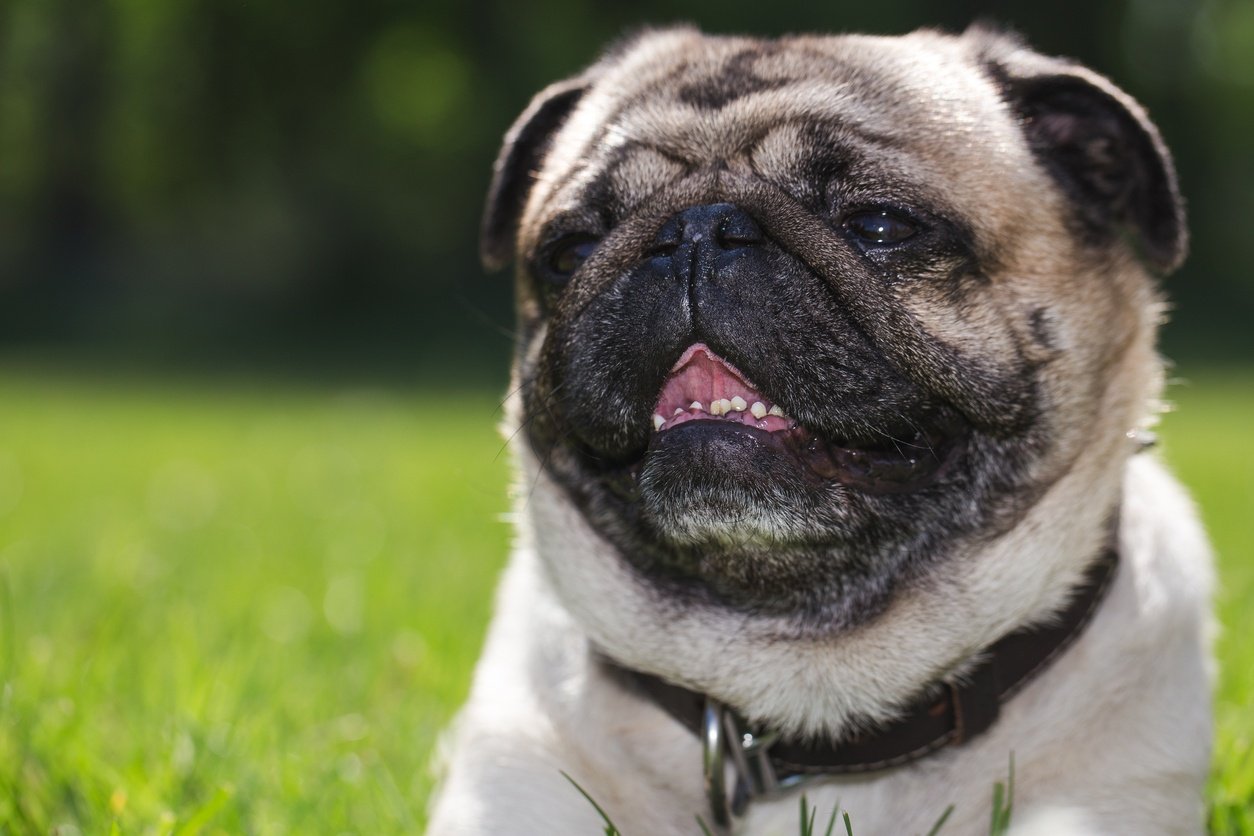Brachycephalic Dog Breed Guide
•Posted on October 18 2018

A scientific word for a dog who is flatter faced, shorter nosed and whose bottom jaw is longer than the upper making the jaw look like it is sticking out. Over the years, brachycephalic breeds have become increasingly popular with their big eyes and round faces. However, despite this they can sometimes have health problems relating to their unusual face appearance.
Brachycephalic breeds:
• Pug • English Bulldog • French Bulldog • American Bulldog • Shar Pei • Dogue de Bordeaux • Shih Tzu • Boston Terrier • Pekingese • Affenpinscher • Lhasa Apso • King Charles Spaniel • Bullmastiff • Rottweiler • Neapolitan Mastiff • Chihuahua • Brussels Griffon • Cane Corso • Japanese Chin
Before purchasing a brachycephalic breed you should be aware of any potential health issues that they can be susceptible to and watch out for any warning signs of ill health and contact your vet immediately. These breeds can suffer with disturbed sleep, heatstroke, skin infections and gain weight quite quickly. Although, not all brachycephalic breeds can suffer with health problems, these are the issues to look out for.
Breathing Problems
The most common breathing problem in these breeds is Brachycephalic Obstructive Airway Syndrome (BOAS), also known as Brachycephalic Syndrome, and this affects their ability to breathe normally.Reasons BOAS Causes Breathing Problems:
- Dogs take in oxygen through their nose and mouth. Some brachycephalic dogs can have narrow nostrils which can make inhaling more difficult.
- Due to their shorter muzzle bones in the skull they have more soft tissue and skin around the mouth, nose and throat - meaning that their airway is narrower or partially blocked as the tissue squeezes into a smaller space.
- Their windpipes can sometimes be deformed and narrowed, meaning less oxygen is taken in with each breath.
- Dogs don’t sweat and regulate body temperature through panting. Unlike longer muzzle dogs, brachycephalic breeds cannot draw in as much air which then causes them to overheat. If your dog is snorting, grunting or wheezing then your dog may be struggling to breath or there is an obstruction to breathing as these aren’t normal noises.
